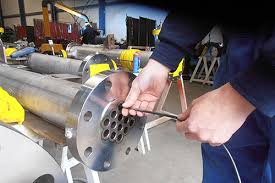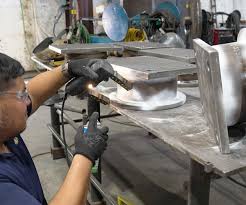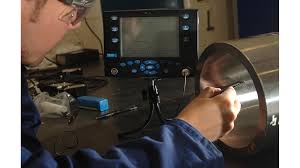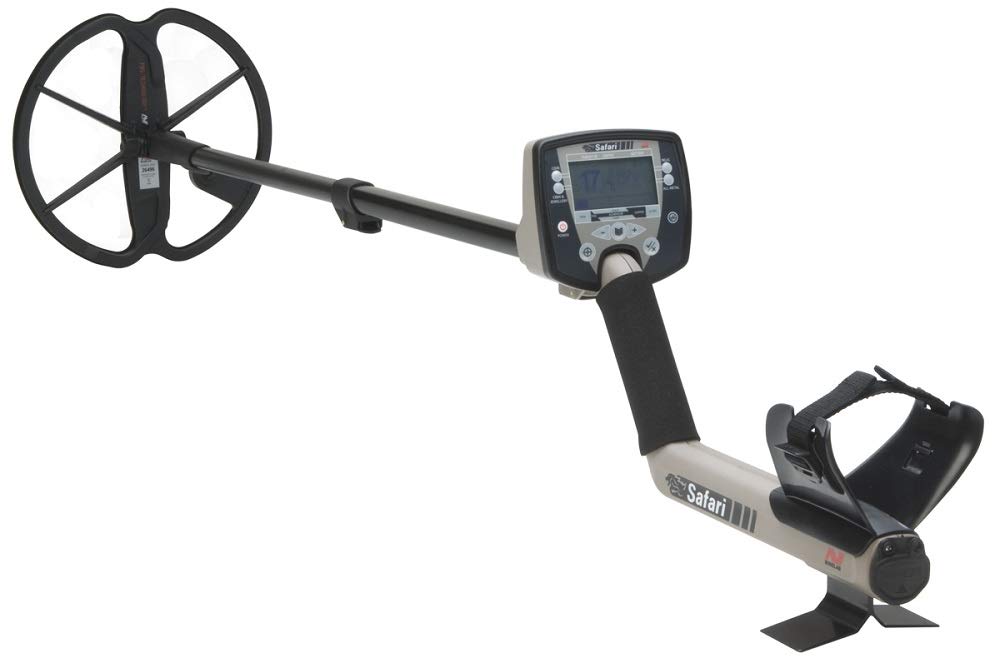Weld quality assurance is a crucial aspect of construction projects in Egypt, ensuring the safety and reliability of welded structures. In a country with a rapidly growing construction industry like Egypt, the need for efficient and effective weld quality assurance processes is paramount. This paper delves into the importance of weld quality assurance in Egypt, and how it plays a key role in creating safe and durable construction projects.
Ensuring weld quality assurance is crucial in Egypt to guarantee safe construction practices. By implementing strict quality control measures and adhering to welding standards, the risk of structural failure and accidents can be significantly reduced. This includes comprehensive training for welders, thorough inspection protocols, and the use of advanced welding techniques and technologies. Furthermore, regulatory authorities and industry stakeholders must collaborate to enforce compliance and uphold the highest standards of weld quality assurance in construction projects. Ultimately, prioritizing weld quality assurance is essential for the safety and integrity of buildings and infrastructure in Egypt.
The Importance of Weld Quality Assurance in Egypt

Weld quality assurance is of vital importance in Egypt's industrial sector, where welding plays a significant role in various industries such as construction, manufacturing, and oil and gas. Ensuring the integrity and reliability of welds is essential for maintaining the safety and longevity of structures and equipment. In Egypt, the need for weld quality assurance has become increasingly recognized, with efforts to implement and enforce standards and regulations to uphold the quality of welds. This is particularly important in sectors such as oil and gas, where the failure of welded components can have catastrophic consequences. The implementation of proper weld quality assurance processes also contributes to the improvement of overall productivity and cost efficiency in Egypt's industries. By avoiding costly rework and repairs due to substandard welds, businesses can save time and resources, ultimately leading to improved profitability. In addition, ensuring weld quality assurance in Egypt is also crucial for meeting international standards and regulations, especially for industries that export their products. Adhering to global welding standards not only enhances the competitiveness of Egyptian products in the international market but also promotes the country's reputation for quality and reliability. Overall, the importance of weld quality assurance in Egypt cannot be overstated, and concerted efforts are being made to promote the adoption of best practices and standards to ensure the integrity and reliability of welded components in various industries throughout the country.
Challenges and Solutions for Weld Quality Assurance in Egypt

Challenges for weld quality assurance in Egypt include lack of standardized procedures, shortage of qualified inspectors, and inadequate resources for testing and inspection. Solutions to these challenges could involve the implementation of international standards, increasing training and certification opportunities for inspectors, and investing in advanced testing equipment. Additionally, fostering collaboration between industry, government, and educational institutions can help improve weld quality assurance in Egypt.
Best Practices for Weld Quality Assurance in Egypt's Industrial Sector
gas ndt inspections service

Some best practices for weld quality assurance in Egypt's industrial sector include implementing proper training and certification programs for welders, ensuring adherence to international welding standards and codes, conducting regular inspections and non-destructive testing of welds, maintaining proper documentation of welding procedures and qualifications, and utilizing advanced welding technologies and equipment. It is also important to establish a culture of quality and continuous improvement within the organization, as well as to provide adequate resources and support for the weld quality assurance process. Additionally, fostering collaboration and communication between different departments and stakeholders involved in the welding process can contribute to overall improved weld quality assurance in the industrial sector in Egypt.
How to Implement Effective Weld Quality Assurance in Egypt
Effective weld quality assurance can be implemented in Egypt by following a set of best practices. This includes establishing clear welding procedures and standards, ensuring proper training and certification of welders, conducting regular inspections and testing of welds, and maintaining accurate documentation of weld quality and production processes. It is also important to use high-quality welding materials and equipment and to implement a system for identifying and addressing any issues or defects in the welding process. Additionally, staying up to date with industry advancements and best practices can help ensure effective weld quality assurance in Egypt.
The Role of Regulations in Weld Quality Assurance in Egypt
Regulations play a crucial role in ensuring weld quality assurance in Egypt. The Egyptian government has established strict regulations and standards that govern welding practices to ensure the safety and reliability of welded structures and products. These regulations cover various aspects such as welding procedures, qualifications of welders, quality control measures, and material requirements. Welding companies and professionals are required to adhere to these regulations to ensure that their work meets the required quality standards. Additionally, regulatory bodies in Egypt regularly inspect welding operations and audit compliance with the established regulations to maintain and improve weld quality assurance in the country.
Ensuring Weld Quality Assurance in Egypt's Infrastructure Projects
gas ndt inspections service
Ensuring weld quality assurance in Egypt's infrastructure projects is essential for the safety and longevity of the structures. This involves strict adherence to international welding standards and certification, thorough inspection and testing of welds, and the use of qualified and experienced welders. The implementation of a comprehensive quality assurance system is crucial to maintain the integrity of infrastructure projects and prevent potential weld failures. In Egypt, efforts are being made to improve weld quality assurance through training programs, certification requirements, and the enforcement of industry standards. These measures ultimately contribute to the overall reliability and safety of infrastructure projects in the country.
Innovations and Technologies for Weld Quality Assurance in Egypt
In Egypt, there are several innovations and technologies being used for weld quality assurance. One example is the use of advanced non-destructive testing methods such as ultrasonic testing, radiographic testing, and magnetic particle inspection. These methods allow for the detection of weld defects and discontinuities without causing damage to the welded components. Additionally, there is a growing use of automated welding systems that incorporate real-time monitoring and feedback mechanisms to ensure consistent weld quality. These systems often use sensors and data analytics to identify and address potential issues during the welding process. Furthermore, digital welding technologies and software tools are being utilized to improve weld quality assurance in Egypt. These tools allow for precise control of welding parameters, documentation of welding processes, and analysis of weld quality data. Overall, the adoption of these innovations and technologies is playing a crucial role in enhancing weld quality assurance in Egypt and contributing to the overall quality and safety of welded structures and components.
